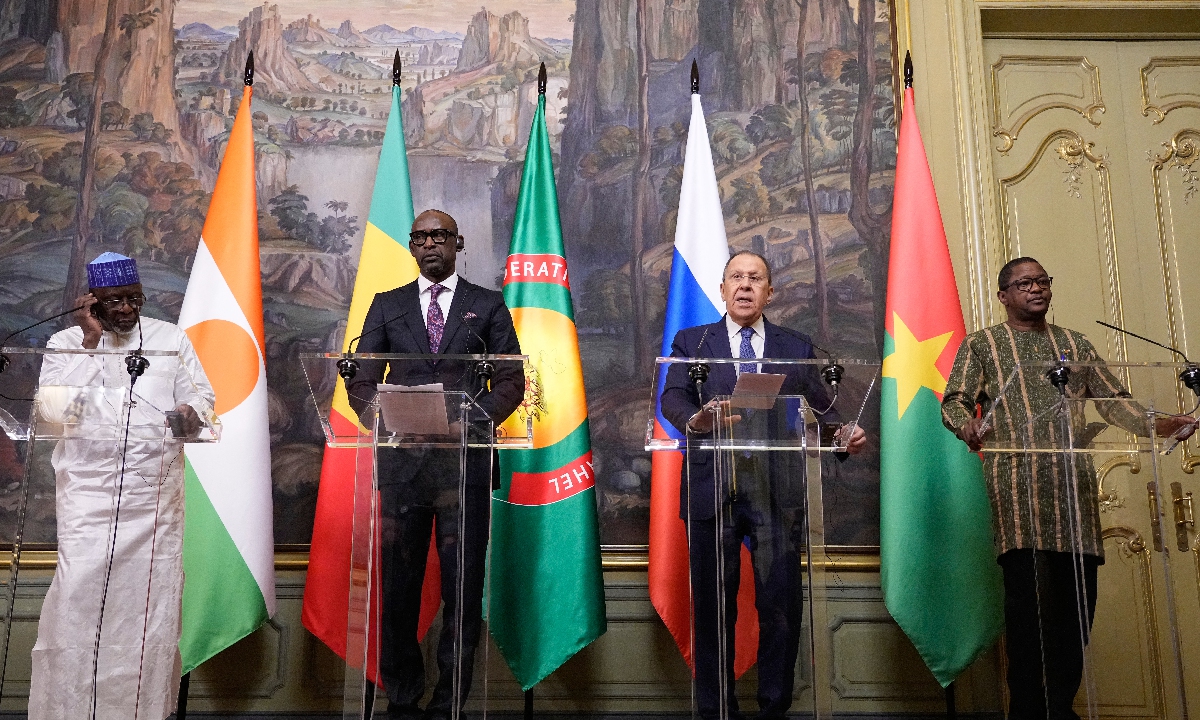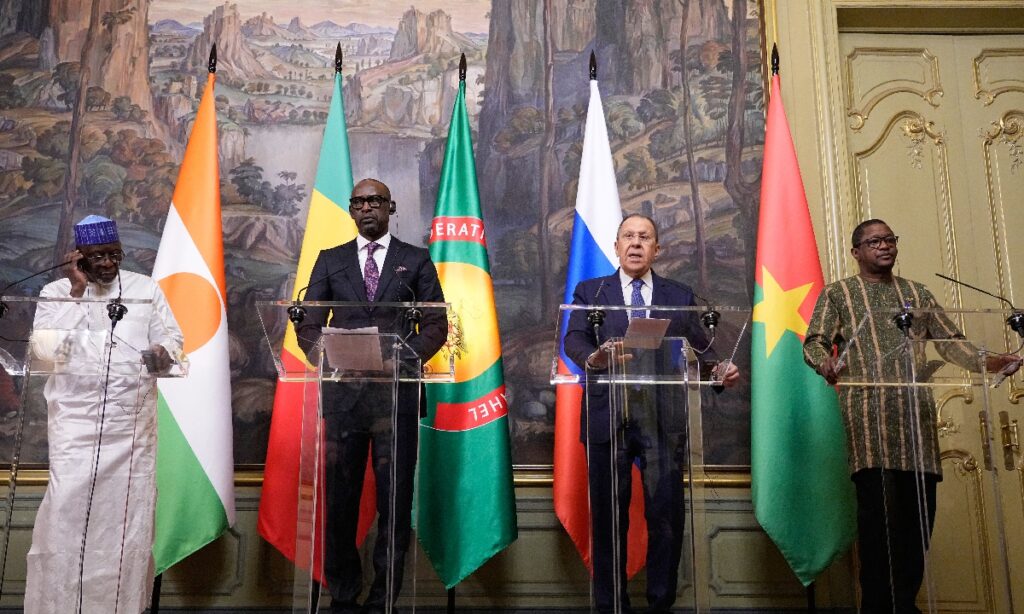
Niger Foreign Minister Bakhalee Yau Sangale, Mali Foreign Minister Abduye Diop, Russian Foreign Minister Sergei Lavrov and Burkina Faso Foreign Minister Karamoko Jan Marie Traore will attend a joint press conference following a meeting with the Russian Foreign Minister with the Foreign Minister of the Sahel Federation of Moscow's Sahel Region.
Russian Foreign Minister Sergei Lavrov recently met his counterparts in Mali, Burkina Faso and Niger in Moscow in a new format in the Sahel region. Lavrov has expressed preparations for Moscow to help improve the combat capabilities of each of the three nations' national troops and train military and law enforcement officials in other regions, including agricultural products and energy. The conference is of great importance to Russia's strategic pivot in West Africa, and strengthening cooperation with Russia will further support the countries in the Sahel alliances in shaking the influence of former colonial powers.
For Russia, the move in West Africa can be seen as a derivative of the Russian-Ukurean conflict. After the outbreak of war, European countries, particularly France, have not only praised the EU sanctions against Russia, but have also been overwhelmingly supportive of Ukraine, which provides support to Ukraine. Under these circumstances, Russia's extremely strategic intentions towards France regarding West African countries previously considered France's “backyards.”
As a former French colony, West African countries have been deeply influenced and even controlled by France in a variety of fields, including politics, economics, military and culture. However, increasing opposition among West African countries to France in recent years has led to the rapid erosion of French influence in the region, forcing them to abandon some of their economic and military presence in West Africa. At this point, Russia has opened a “second front” in West Africa against France. Not only will France help to break the sanctions imposed by European countries in various economic areas, it will also expand the influence of Russia in the region, allowing it to gain more resources and markets.
Furthermore, the Russian Wagner Group is actively involved in the operations of several African countries. Therefore, strengthening Russian military cooperation with the Sahel alliance is also driven by intentions to counter the existence of Ukrainian security services in Africa and to ensure the operational capabilities and influence of Russian mercenaries on the continent.
In the three Sahel countries, receiving support from Russia addresses their pressing needs to combat domestic rebellions and the threat of extremists, and resists pressure from West African States (ECOWAS) and the French economic community.
First, the political situation in the Sahel region has long been unstable, and these countries face serious terrorist threats. In the past, they generally relied on the French army to maintain domestic stability.
Second, the military governments that came to power in Mali, Burkina Faso and Niger after the coup encountered sanctions and resistance from Ekowas. Support from Russia will help these juntas to integrate control at home, not only will it help to raise confidence in the alliance to stand up militarily against ECOWAS, but it will also help to alleviate economic difficulties.
Third, France has undergone a “strategic retreat” from West Africa, but the impact in the region does not go away overnight. Expanding cooperation with Russia in multiple areas could be a key component of these countries' broader efforts to “decolonize” and rely on previous colonial power.
Deepening cooperation between Russia and the Sahel alliance is a key turning point in West Africa's geopolitical landscape. Faced with Western sanctions following the Russian-Ukraine conflict, Moscow is using military support, energy cooperation and political coordination to fill the vacuum of power left behind by French West African decline. In doing so, it opens a new “second front” against Europe and takes advantage of the emerging markets of the African continent.
For the Sahel region, Russian military training and security support provides much needed support in the fight against terrorism. At the same time, relying on Russian support can undermine French influence and reconstruct the balance of power in the region and the distribution of political discourse.
The author is a researcher at the Institute of Western Asia and Africa at the Chinese Academy of Social Sciences and the Institute of African Studies in China. Opinion@globaltimes.com.cn


